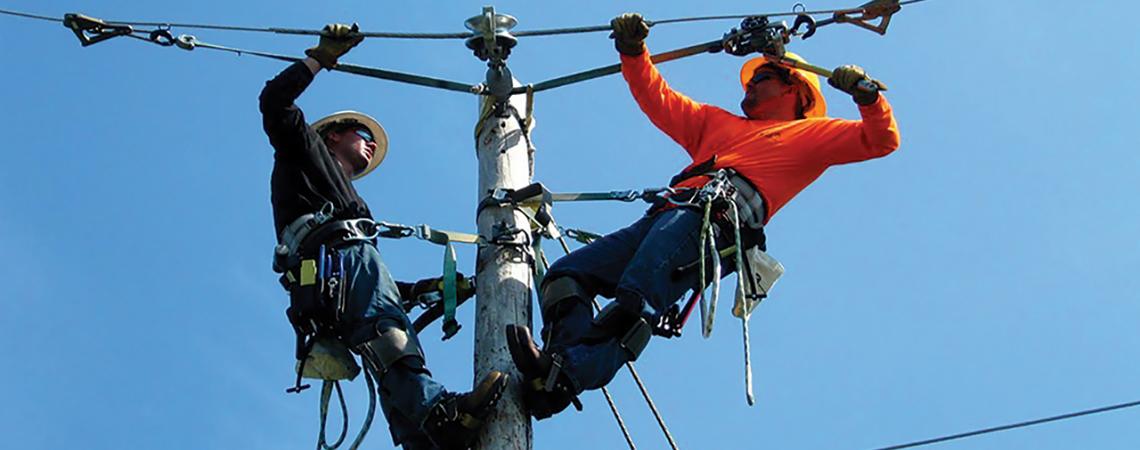Our COLT training facility allows for hands-on apprentice and journeyman lineworker training for Ohio linemen.
As spring blooms across Ohio, we also prepare for the inevitable thunderstorms that accompany the season. This past winter, we’ve done more than ever to prepare for the storms, car accidents, and other events that cause lights to go out. The Central Ohio Lineworker Training (COLT) program has been busier than ever, taking advantage of the new indoor facility that we built last year to train both apprentice and journeyman lineworkers about safe and effective methods to repair, and enhance, our electric network.
The building and its training stations represent a significant shared investment among the state’s electric cooperative network. It provides a year-round, controlled environment for our lineworkers to learn and master their trade. Not only do the COLT program and training facility help to make our service more reliable, they simultaneously help to keep our lineworkers safe.
We had high expectations for the facility’s operational impact — yet the benefits have more than surpassed our hopes.
In addition to the basic instruction that we provide to apprentices who are learning their trade, we’ve added advanced classes for journeymen that increase their technical knowledge, demonstrate state-of-the-art equipment, and incorporate advanced work methods in a controlled environment.
Apprentice and journeyman class enrollments have been at maximum levels, allowing us to employ our second classroom to meet demand.
Our instructors are able to re-create real-life situations to answer questions with hands-on demonstrations, rather than simply explaining theory.
The indoor training environment provides a better way for instructors to teach and explain correct procedures to a student who’s handling a live wire at the top of one of the facility’s 40-foot poles.
We celebrate Lineworker Appreciation Day on April 9, so please take a moment to thank our linemen for the work they do to keep our lights on. It’s a difficult and potentially dangerous job under the best of conditions, but as you can imagine, their work is most crucial when conditions are at their worst. I’m thankful that we can now provide them the best possible training to prepare them to provide a vital service.









